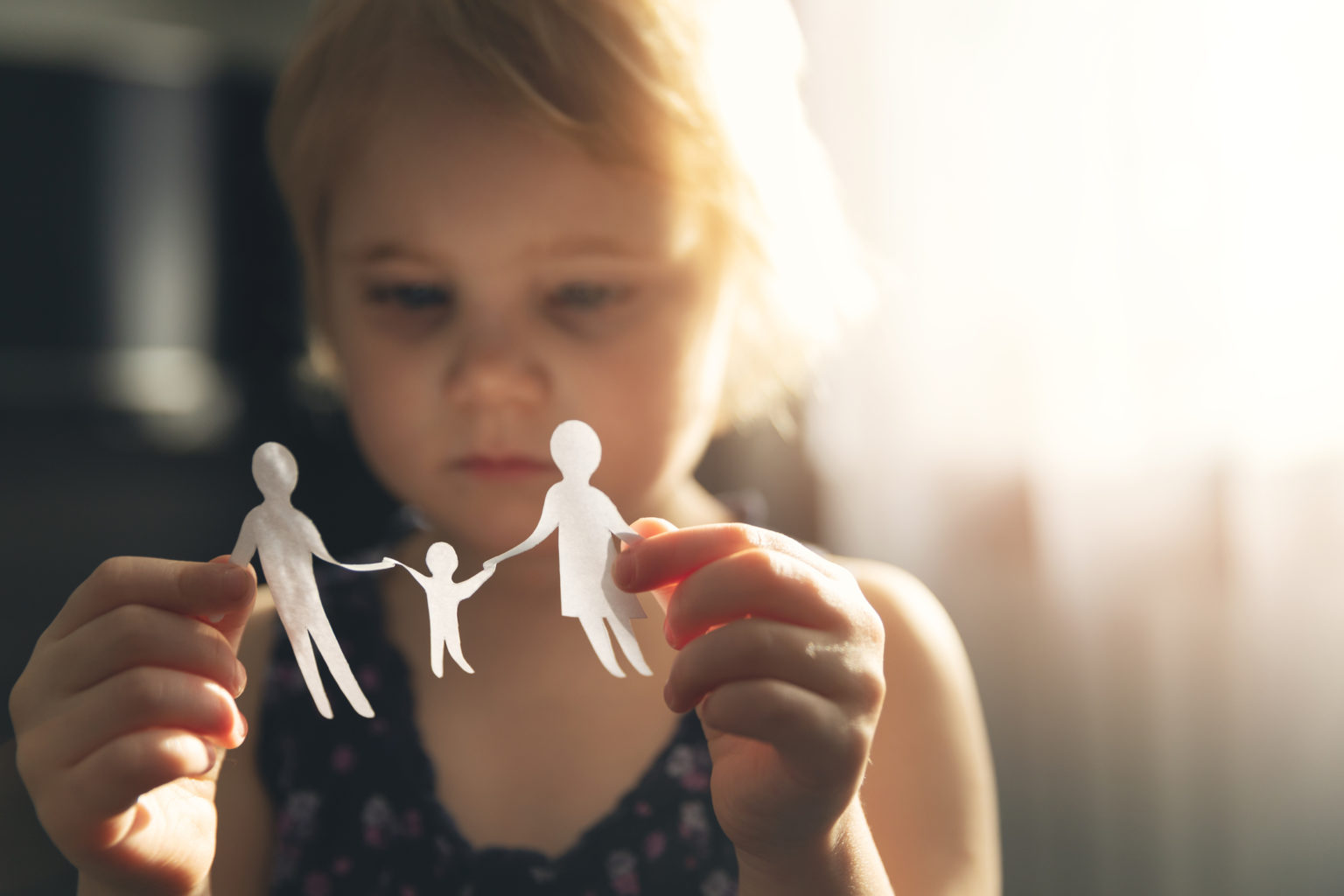 Nov 17, 2023 | by Lucy Solie-Vilker, Program Director
Nov 17, 2023 | by Lucy Solie-Vilker, Program Director
Talking to your child about donor conception can feel daunting, but with care and intention, these conversations can nurture openness and trust. By learning from the experiences of other parents and donor-conceived people, you can thoughtfully approach discussing donor conception in a way that conveys love and respect for your child.
How to Talk to Your Child About Donor Conception
While each family must choose what feels right for them, we’re here to share some helpful dos and don'ts to help guide you through the process.
DO Let Them Know How Loved They Are
The most important point to make when talking to your child about their conception is letting them know how deeply loved and wanted they are. So much so, that an entire team of people came together to bring them into existence and into your family.
DO Tell Them Early and Gradually
The conversation is a process, not a one-time event. Start when your child is preverbal and aim to grow the story over time. With this approach, the conception story becomes a gradual process, organically unfolding over time instead of a formal announcement that may be stressful for the parent and shocking for the child.
As stated by the Donor Conception Network,
“The goal of early telling is that a child should grow up never knowing a time when they didn’t know about their origins by donor conception.”
Intertwining donor conception into their birth story typically isn’t a big deal for kids, especially if the parents don’t make it a big deal. Additionally, studies show that stress, anxiety, and depression levels are lower in families who choose early disclosure.
DO Use Age-Appropropriate Language
Talking about donor conception gradually from a young age helps to create a foundation to continue building the story with age-appropriate information as your child grows. For young kids, keep it simple and concrete. Young children are very concrete thinkers, they do not develop abstract thinking until early adolescence. As they grow, share more details about genetics and the donor's role in a thoughtful way.
For instance, when your child is five or younger, the language can sound like this:
“We tried so hard to have you. Sometimes parents need a little help to make a baby. I/We received a special gift from someone who helped us have you.”
- Helpful Resources: The Donor Conception Network has age-grouped booklets to help guide you through telling and talking to your child(ren) about donor conception, filled with quotes from experienced parents.
DO Get Comfortable Talking About It
To normalize the topic, try to bring it up naturally when the chance arises.
For instance, if your child is showing an interest in singing, you can share with them that their donor was also a very talented singer! This is an exciting way to show your child that you are comfortable bringing it up, and therefore, they can also feel comfortable enough to come to you when they have questions.
As shared by mother via egg donation Victoria Nino,
"I am a huge believer in epigenetics and talk about the impact that all three people had in making her - our egg donor, her father, and me. I'm constantly experimenting with different ways of explaining this to my three-year-old, and find it easiest to casually mention where she gets things from as they come up, like her button nose from her donor, her beautiful eyes from dada, and her sense of humor from mama."
This approach can help relieve any tension or nervousness surrounding the topic as it becomes normalized in your family and the child understands that it is nothing to be ashamed of.
DO Expect and Encourage Questions
Children are naturally curious, so you should expect (and encourage!) your child to ask questions. Answer honestly while maintaining your boundaries. You can choose how much information to give them in response to their questions, and they will likely move on fairly quickly after you’ve engaged them.
Also, don’t panic if your child asks to meet the egg donor or the embryo donors. It’s important to know that they are not trying to replace you. Instead of responding with a hard “no” which may be off-putting for the child, you can leave the door open by simply saying, “Maybe someday.”
DO Prepare Yourself
Think through how to handle tricky situations and communicate with loved ones about how to respond if your child goes to them with questions.
By thinking about certain situations beforehand, you can maintain control of any boundaries you have. For instance, you may choose to share with your child early on, but would rather wait until they are a bit older before you share specific information about the donor(s) or IVF process that occurred.
Try to communicate your feelings and expectations on the matter with everyone who will be close to your child. Let them know how you’d like them to respond if your child goes to them for information at any point.
DO Honor the Donor Appropriately
You can honor and recognize the donor’s contribution without under- or overstating their role. Find a balance in language that works for your family. For instance, you can refer to them as either the “donor” or the “helper.” It’s important to distinguish that the donor’s role is different than a parental role.
It’s also important not to underplay the role of the donor. As your child begins to understand more about genetics, they will come to understand how the contribution from the donor(s) helped make them who they are. It is possible to acknowledge that the donor is a real person, and is very special, without compromising the very important and special role that you play as the parent(s).
DON’T Make It a Shameful Secret
While privacy is understandable, secrecy can create unhealthy feelings.
As stated by Creating A Family,
“Even if you do not want the world to know, there is a mighty fine line between privacy and secrecy. It is fine to encourage your child to only talk about their conception within the family, but if you go overboard you risk making it a secret, and secret implies there is something wrong or shameful about their conception.”
As your child grows up, they may prefer to keep their origins more private or share the news differently. Once they are old enough, you can give them autonomy over their story.
- Learn more about privacy vs. secrecy in this related blog post.
DON’T Let Fear Stop You
Understandably, some parents may have a deep-rooted fear that their children will not feel as connected to them if they know that they are not genetically related. Fortunately, that’s not the case! It’s common to hear donor-conceived children comment on the love and connection they feel with their parents, regardless of genetic linkage. As beautifully shared by donor-conceived child Allegra in this video, “I am my mother’s child.”
Your donor-conceived child is every bit your child, and they will feel that parental connection.
DON’T Hesitate to Seek Help
Consider counseling or support groups to feel confident and ready to navigate talking about donor conception with your child. Several of the resources listed below share insights from other parents and experiences from donor-conceived people to help broaden your perspective. Additionally, there are many therapists who specialize in egg donation, ready to discuss any fears or concerns you may have.
Online Communities and Support Groups:
Conclusion
We recognize that families thoughtfully weigh cultural and interpersonal dynamics when making decisions about discussing donor conception with their child(ren). Ultimately, we understand that each family chooses what they believe to be best for their specific situation. We hope the information and perspectives shared in this blog post help you to feel empowered to approach the topic with confidence and compassion.
From the Donor Nexus Blog:
Donor Database
Register now to receive free and instant access to our online donor database.
GET STARTED »
My dreams have come true!
“We are enjoying our baby and we just love him so much!! Thank you again for this amazing gift- I’m so forever grateful. My pregnancy was so wonderful and I am really looking forward to everything… It’s amazing what you do for people. My dreams have come true!”
– Intended Parent B.M.



